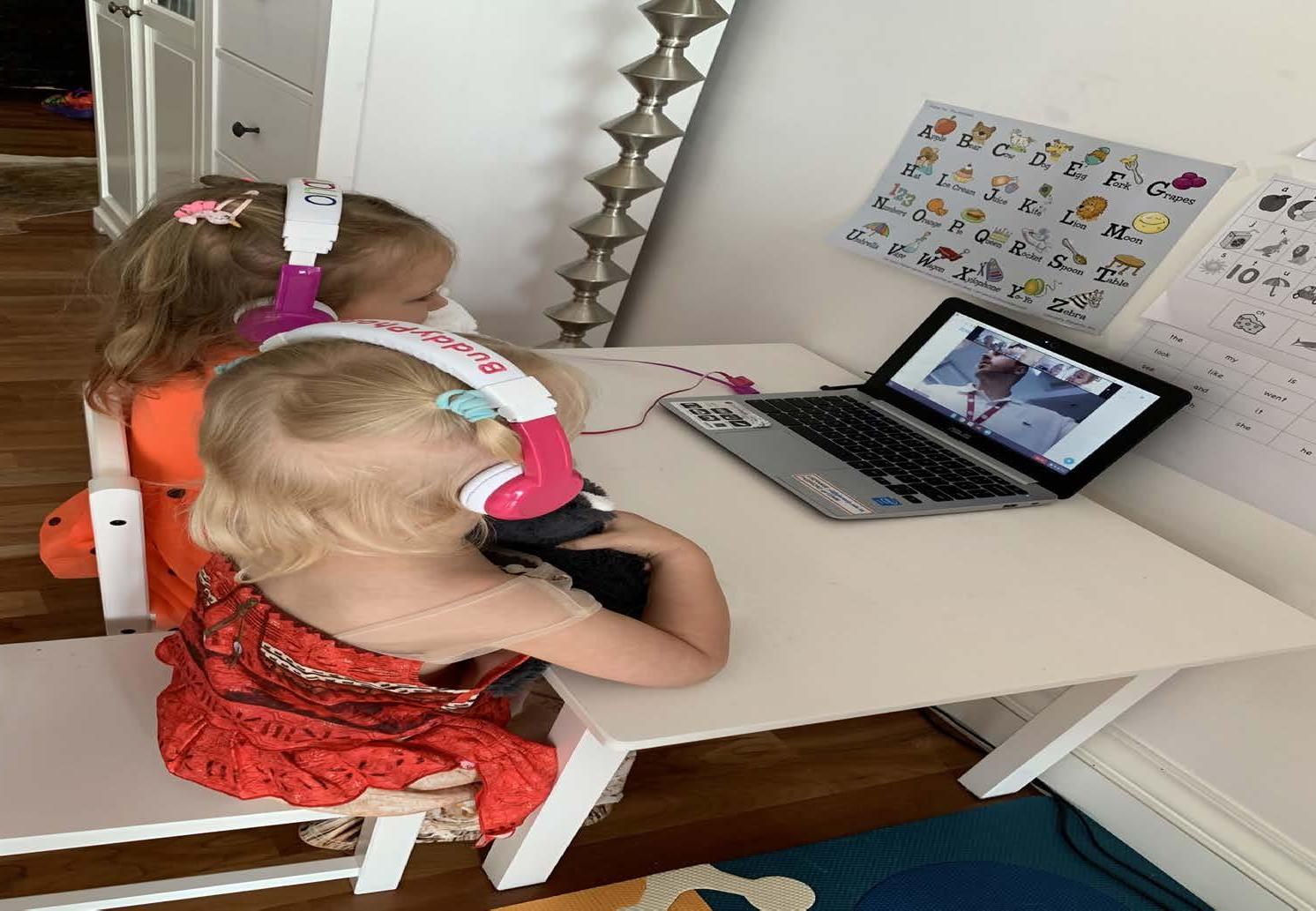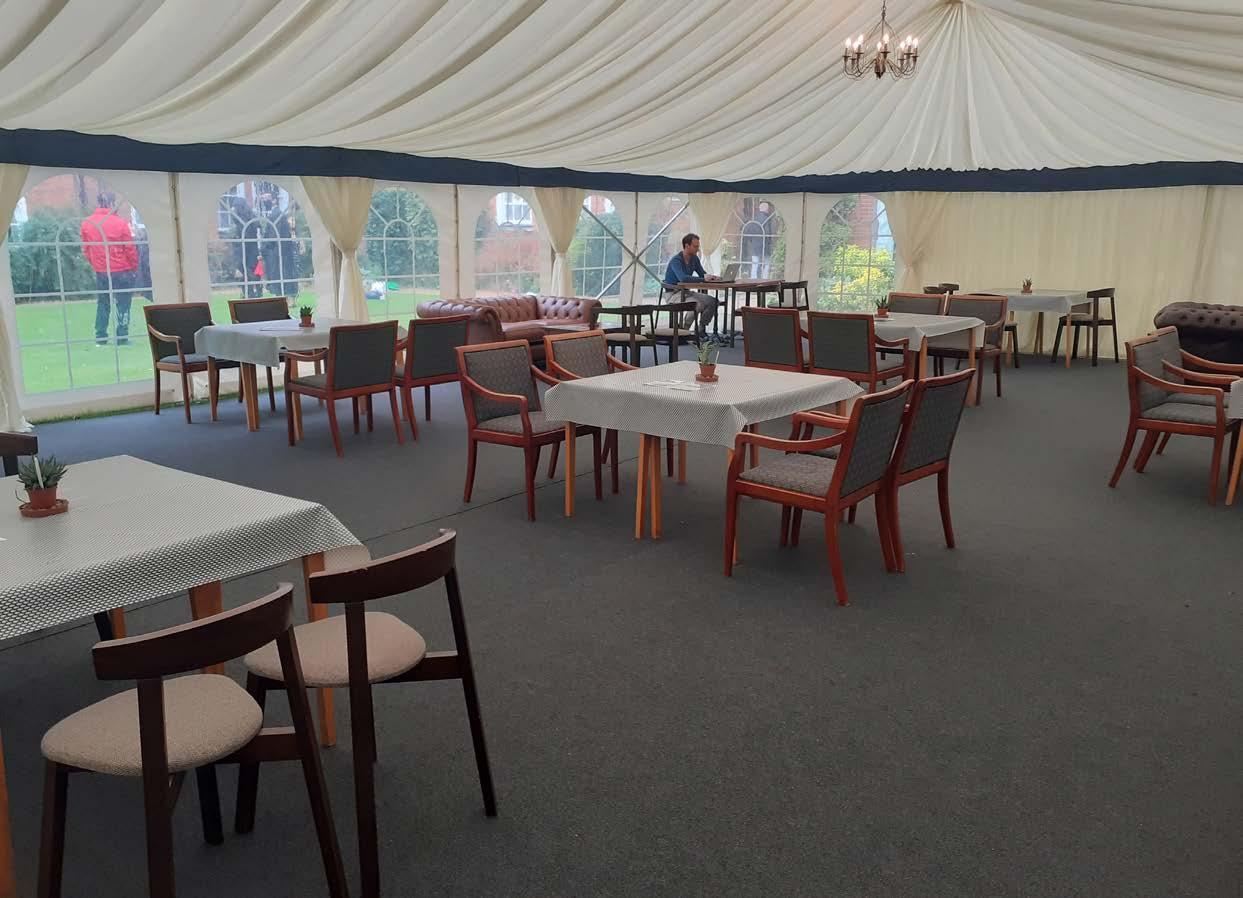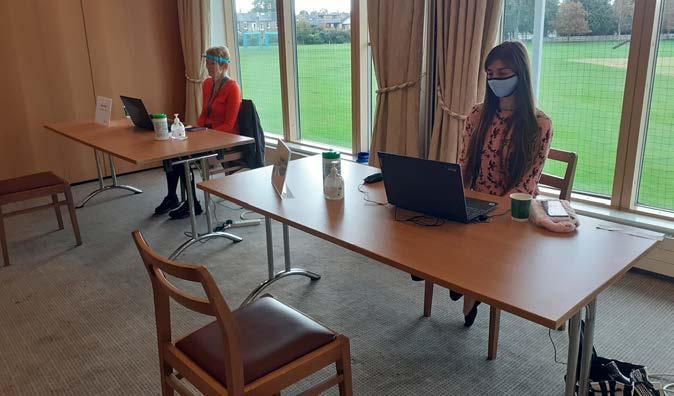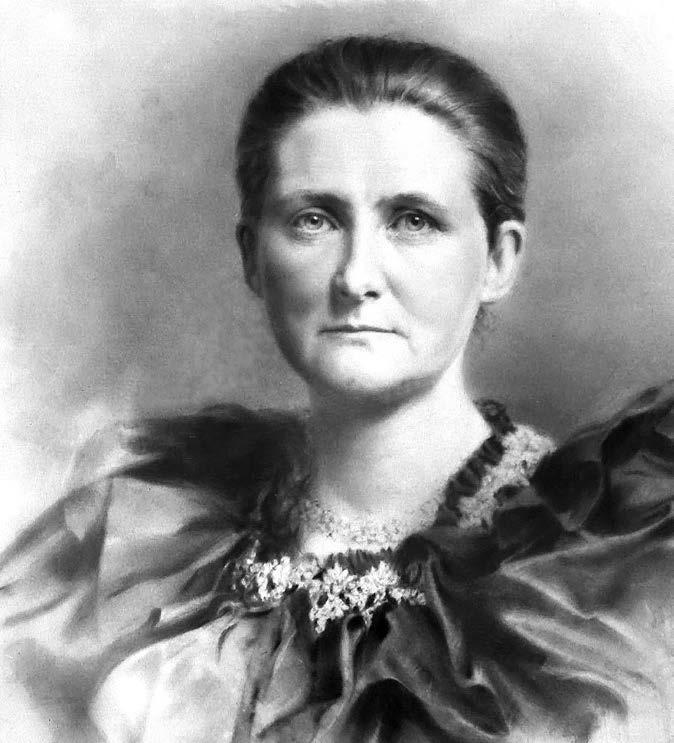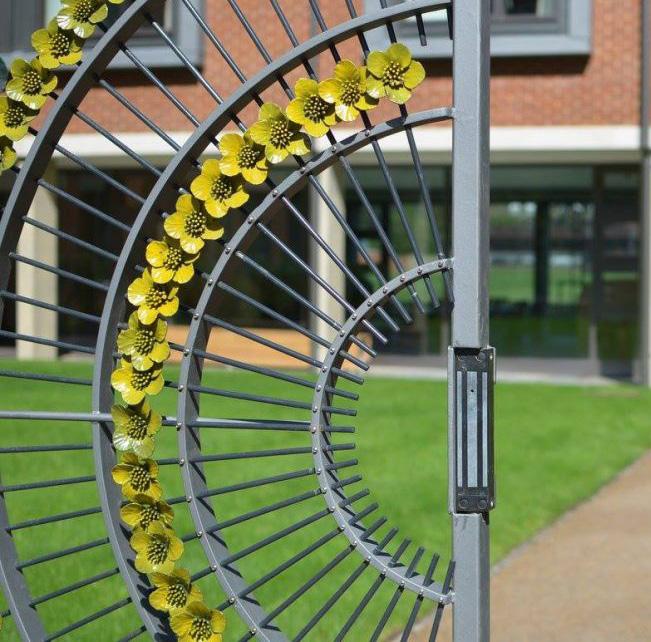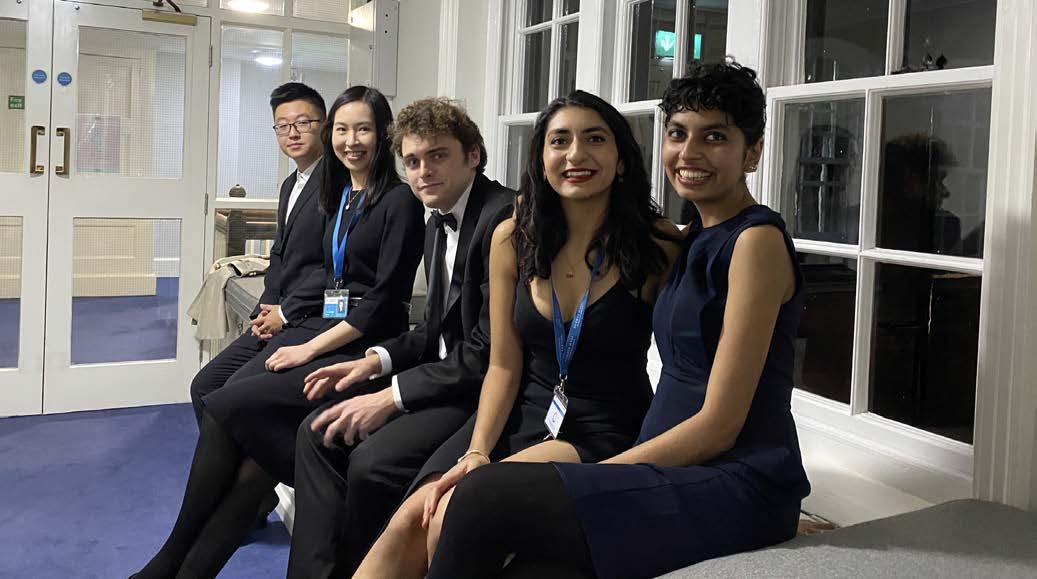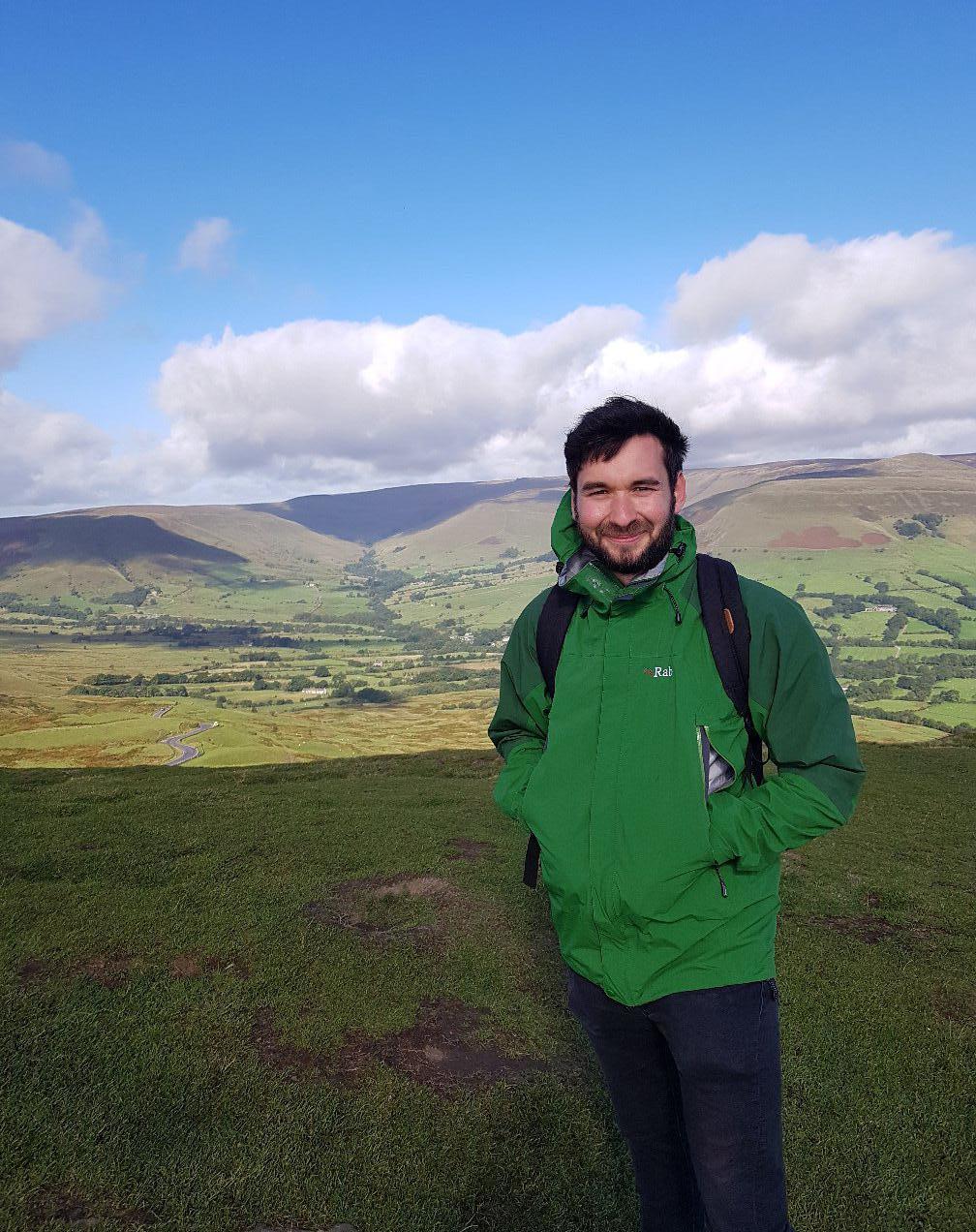
6 minute read
Developing novel antibody drugs
From a PhD in Molecular Biology at Hughes Hall to co-founding a biotech company in Singapore and trialling innovative cancer therapies in partnership with Cancer Research UK, the career of Jerome Boyd-Kirkup, Chief Scientific Officer at Hummingbird Bioscience, epitomises the transformative work Hughes Hall alumni are doing all over the world.
From London to Cambridge to Shanghai to Singapore
Advertisement
After an undergraduate degree at Imperial College London Jerome BoydKirkup (2005, Molecular Biology) came to Cambridge to do his PhD. ‘With no experience of a collegiate environment,’ he explains, ‘I wanted to meet likeminded postgrad students to share work and social experiences with, and the profiles of people at Hughes Hall seemed very similar to mine. My years at the college delivered on what I had hoped. I was surrounded by fantastic people. The variety of postgrads at Hughes made it a great base and place to hang out. I remember my time there very fondly. The lasting friends I made have been very supportive throughout my career.’ After finishing his PhD in 2010, Jerome wanted to explore options and spent a few months travelling around Asia. There he was struck by the energy and investment going into technology and biotech at a time when the West was struggling. Taking advantage of the exciting opportunities available he began a post-doc at the Max Planck partner institute for computational biology in Shanghai, an important hub of Asian biotech science. ‘It was great to be involved in the young biotech industry. I transitioned to working with an interdisciplinary group trying to build a big picture view of human disease, looking at the system as a whole. Working this way with a range of people including physicists, computer scientists and molecular biologists proved to be a fantastically productive way to understand and solve problems.’
An opportune time
At Shanghai, Jerome connected with his co-founder of Hummingbird Bioscience, who shared his belief in ‘solving the problem by solving the whole system’. This was a very different way of thinking: applying tools from a range of areas to drug discovery and development. In 2015 they founded Hummingbird Bioscience in Singapore. ‘We built a platform – our Rational Antibody Discovery Platform – for discovering new antibody drugs, which would be impossible using traditional methods. Working with physicists, immunologists, geneticists, and even animal biologists, we wanted to know how and why the system goes wrong, and then how we could design and develop precise and effective antibody drugs to solve it.’
The research at Hummingbird attracted both significant investment and interest. Its first project for a potentially transformative new antibody drug for cancer is entering clinical trials in 2021, in partnership with Cancer Research UK.
‘We were fantastically privileged that the deeply experienced team at Cancer Research UK saw the potential of the therapy we have been working on. The funding and management support provided by Cancer Research UK allows us to progress a potentially transformative new cancer therapy into patients as quickly and safely as possible. This allows Hummingbird to keep our focus on developing more desperately needed drugs against new targets using our platform.’
‘My work has led me back to Cambridge, a key centre for drug development, in part due to the networks I developed whilst studying at Hughes Hall. Many of the people I met at Cambridge were outstanding in the scientific field, and we were still in touch.’
Jerome is optimistic about the future. ‘This is a very opportune time to be working in bioscience. The vast amount of new data, such as genomics, transcriptomics and proteomics,
recorded over recent decades, allows us to work in an agile and efficient way, as the tools we use are also available at a manageable cost. In many ways, biology networks are akin to today’s
Overcoming drug resistance
Hummingbird’s novel antibody,
HMBD-001, targets the HER3 receptor, which when activated through binding to other cancer-associated proteins, turns on a strong signal that causes cancer cells to grow and divide. This activation is common in multiple solid tumours, and also seen when cancers develop resistance to existing cancer therapies. HMBD001 is the only anti-HER3 antibody in development that binds to the most critical region involved in
HER3 activation, turning off this signal completely. If successful, this new antibody could be used in the treatment of multiple cancers and be effective against drug resistant cancers. Hummingbird’s antibody is distinct from other anti-HER3 agents currently in development, because In early November, Jerome contacted Hughes with some previously confidential information. ‘Like many people, organisations and countries,’ Jerome said, ‘we started 2020 with a very different set of goals and objectives than what we’ve ended it with. Since February, we’ve been working day and night in collaboration with our partners in Singapore and the USA on a COVID-19 response programme. We’ve developed what we believe will be an important treatment option. In October social networks, where technology has revolutionised the way we interact. Through big data and advancing technology, we’re investigating how proteins “socialise”. Our potential ability
it blocks all mechanisms through which HER3 can be activated. This overcomes an intrinsic mechanism that has prevented previous HER3 therapeutics from working effectively.
Dr Nigel Blackburn, Cancer Research UK’s director of drug development, said: ‘We’re thrilled to be working with Hummingbird to fast track such a promising new antibody, through one of the most difficult stages of drug development. For many people with cancer, targeted treatments can work in the short term, but drug resistance sometimes leads to the eventual return of their tumour. We hope this antibody may be able to overcome a key mechanism of drug resistance and help us find new lasting ways to tackle the disease.’ we received authorisation from the Singapore Health Sciences Authority (HSA) to initiate clinical trials for our experimental SARS-CoV-2 antibody therapy, HMBD-115 (also known as SC31). Trials are now ongoing. HMBD-115 is a potent SARS-CoV-2 neutralising antibody for the treatment of COVID-19. Pre-clinical data has demonstrated significant therapeutic benefit for HMBD-115 in multiple models of COVID-19. After treatment, the circulating infectious virus was dramatically lowered and the inflammatory immune responses associated with life-threatening to gain understanding of problems and predict solutions is unprecedented.’
‘Looking to the future, I hope that the tools and platforms we are building revolutionise our understanding of human disease. These are exciting times to be part of the biotech industry. At Hummingbird, we want to expand beyond oncology to infectious diseases, and our hope is that our platform will really make a difference to those who need it. Looking back, it’s fascinating to see how the pieces that led to where I am today fit together – and it all started when I was surrounded by great people and great ideas at Hughes.’
For more information see:
Hummingbird’s COVID-19 response programme
www.hummingbirdbio.com systemic disease were greatly reduced, which together prevented lung damage and significantly improved survival.
Normally it takes three to five years to get a drug into clinical trials. Thanks to everyone’s hard work and commitment we’ve done it in eight months. We’re really proud – indications are that HMBD-115 is robust, safe and strong candidate for antibody therapy. It offers an important treatment option, particularly for at-risk patients who may respond poorly to a vaccine.’
